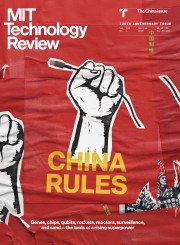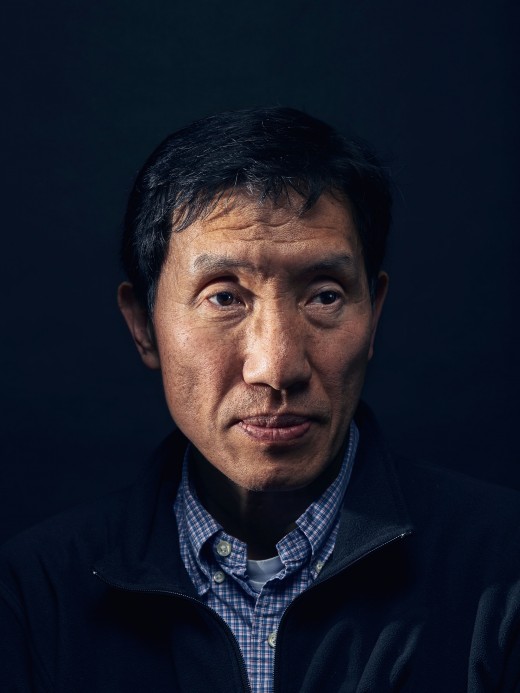Born in Beijing and educated at Harvard, Yasheng Huang, a professor at MIT’s Sloan School of Management, is a keen observer of China’s entrepreneurial efforts and the role the government has played in the country’s remarkable growth. Will Knight, a senior editor at MIT Technology Review, recently talked with Huang about the country’s changing technology scene.
In what areas of technology is China ahead?
In AI and big data, China is surging ahead, there’s no doubt. These are areas compatible with the government’s politics and things like its “social credit system.”

This story is part of our January/February 2019 Issue
See the rest of the issueSubscribe
People also talk about life sciences. To some extent, that’s developing fast for similar reasons as AI. You just plunge ahead without privacy complaints, without safeguards, regulatory constraints.
In a very crude sense, you can develop science very fast without constraints.
BARNES AND NOBLE
[In] anything that requires a lot of capital commitment, and that’s in line with the political objectives, you can expect China to move forward. So, for example, in quantum computing and maybe even microchips.
How much does China depend on the US for finance, talent, and IP?
China is not that dependent on the US for financing, and it is exporting talent to the US. In terms of intellectual property, we just don’t know. There’s a perception that China parrots US IP, and I think as a general description that’s probably right. But China is also producing some IP as well. I think China is, however, very dependent not just on the US but also on Japan, South Korea, and other countries for critical, key components in their manufacturing.
Who is losing more from the trade war?
If I must give an answer, I would argue China.
Even though the Chinese economy is growing at a higher level, it is trending downwards. Whereas the US economy is trending upwards. There is concern about overheating in the US economy. But to some extent, a trade war acts as a brake on an overheating economy. In the Chinese case, it’s like taking away the fuel from a fire that is diminishing. Whether the US has the tolerance, that’s a separate question. It could be that the US is losing less, but then the political system here is more sensitive.
Recommended for You
Will tightening immigration rules help protect America’s intellectual property?
Those moves I see as more damaging to the US than China. If you look at MIT, a lot of great research is done together with Chinese graduate students and Chinese professors. Once you stop that, that’s going to have a big impact on cutting-edge research.
Their rationale is that there are Chinese spies. I’m not going to say there are none. But that’s like saying “There are criminals, therefore we should ban human beings.” It’s a law-and-order issue. You should step up vigilance and controls, rather than stopping Chinese from coming here.
Why hasn’t China’s economic boom been accompanied by political reform?
There are really two things going on. One is the values of the Chinese people, the norms, and I think the evidence is very clear that those are changing—maybe not toward democracy, but toward more openness. Then there is the politics—the leadership and the government.
Economics can predict the value changes, but I don’t think it can be that deterministic of who becomes the president. Look at this country. Trump became president, and who would predict that in terms of economics? Politics has its own dynamics.
How supportive is the government for entrepreneurs?
It is the natural inclination of the government not to support the private sector. I think it takes a substantial reduction of economic growth for them to fundamentally change the way they do things. It’s not just a matter of supporting, either. It’s a matter of really taking the government out of the private sector, at least drawing a clear line between the government and the private sector. That’s something they don’t want to do.

沒有留言:
張貼留言